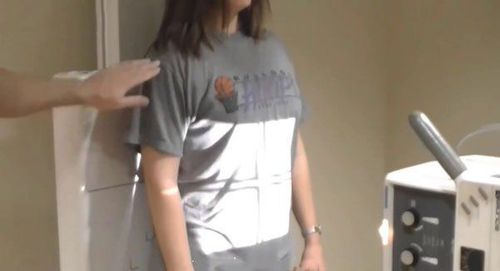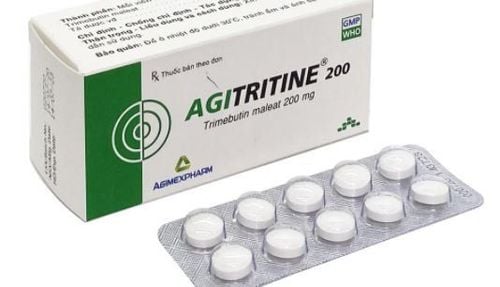This is an automatically translated article.
Constipation is common and can be treated at home. However, if left untreated for a long time, it can lead to intestinal obstruction. This is one of the most common surgical emergencies in abdominal emergencies. Intestinal obstruction if not treated promptly can lead to death.
1. What is an intestinal obstruction?
Intestinal obstruction is a blockage in the circulation of substances contained in the intestinal lumen including: feces, fluid, gas, digestive juices, ... These substances are accumulated to the point of causing enough pressure to perforate the intestines. and cause leakage of the contents of the stomach into the abdominal cavity. Intestinal obstruction is one of the most common surgical emergencies in abdominal emergencies, second only to appendicitis.
Symptoms of bowel obstruction that you may experience include:
Feeling of fullness Abdominal pain, even severe cramping Decreased taste Nausea, vomiting Constipation or diarrhea Swollen abdomen Besides, a The number of symptoms may depend on the site of the bowel obstruction. For example, vomiting is an early sign of small bowel obstruction. If the site of obstruction is in the large intestine, this symptom manifests later. Partial intestinal obstruction can cause diarrhea, while complete bowel obstruction leads to intestinal obstruction constipation.
2. Why does constipation cause bowel obstruction?
There are many causes of intestinal obstruction which can be mechanical obstruction or paralytic ileus. In which, prolonged constipation is the main cause of intestinal obstruction. Constipation is defined as having less than 3 bowel movements per week and severe constipation is having less than one bowel movement per week. This leads to long-term stagnation of stool in the rectum, so the stool becomes harder and harder.
Long-term constipation causes partial or total intestinal obstruction, with manifestations such as intermittent abdominal pain occurring continuously, unable to smell, distended abdomen, unable to defecate.

Táo bón tắc ruột là tình trạng nên cần được điều trị sớm và kịp thời
3. Diagnosis and treatment of intestinal obstruction
Diagnosing intestinal obstruction first the doctor will ask about the medical history and do a physical examination by performing an abdominal exam. Some clinical signs can be easily recognized that is the abdomen is swollen, distended or has a lump.
After that, the doctor may order some laboratory tests such as abdominal X-ray or CT scan to find out exactly where the bowel obstruction is. If it's in the large intestine, the patient needs to conduct an endoscopy or contrast imaging to see the intestines.
Intestinal obstruction is one of the surgical emergencies, so it should be treated early and promptly, not self-managed at home. Therefore, the medical staff may place a flexible tube through the mouth or nose to remove air and fluid from the abdominal cavity. Most cases of bowel obstruction caused by constipation require surgery. Patients will receive continuous fluids for 6-8 hours to prevent dehydration, restore electrolyte balance and prevent shock during surgery. In cases where the intestinal tissue at the site of obstruction has been necrotic, it should be removed. Some medications for intestinal obstruction include:
Antibiotics to prevent infection Antiemetics Pain relievers In short, intestinal obstruction is a condition caused by many causes, of which constipation causes bowel obstruction. primarily. This is a surgical emergency that, if not treated promptly, can lead to partial bowel necrosis or even perforation, severe infection, and shock. Therefore, when suffering from constipation, it is necessary to treat it immediately, avoid prolonged constipation and change the lifestyle and diet properly to prevent constipation as well as intestinal obstruction.
Please dial HOTLINE for more information or register for an appointment HERE. Download MyVinmec app to make appointments faster and to manage your bookings easily.













